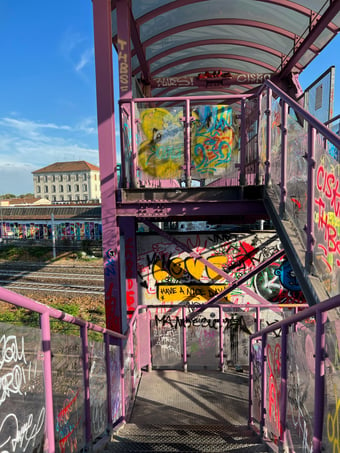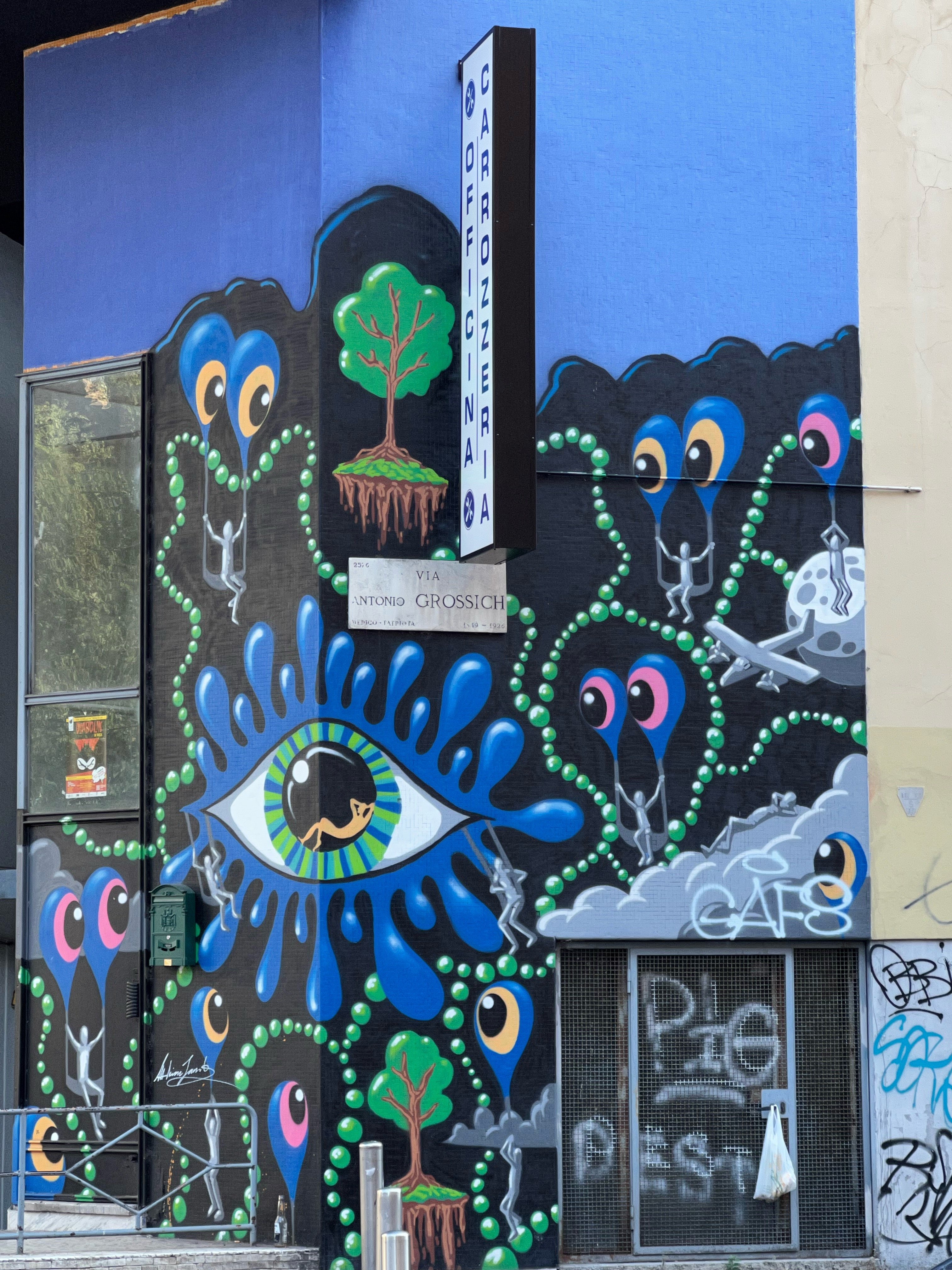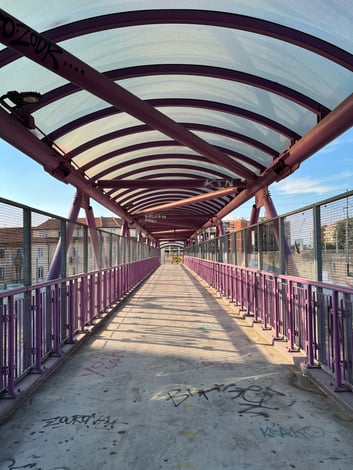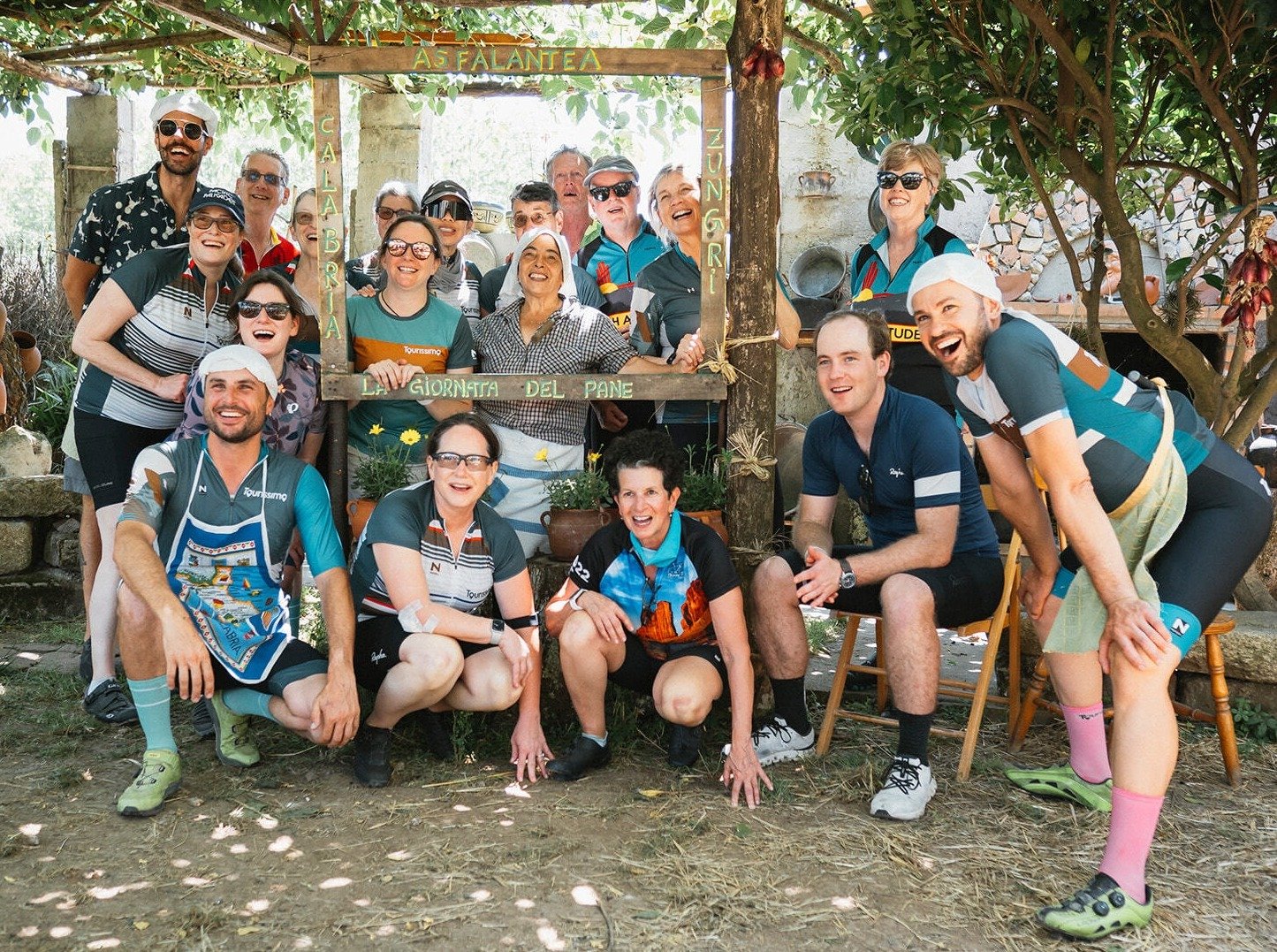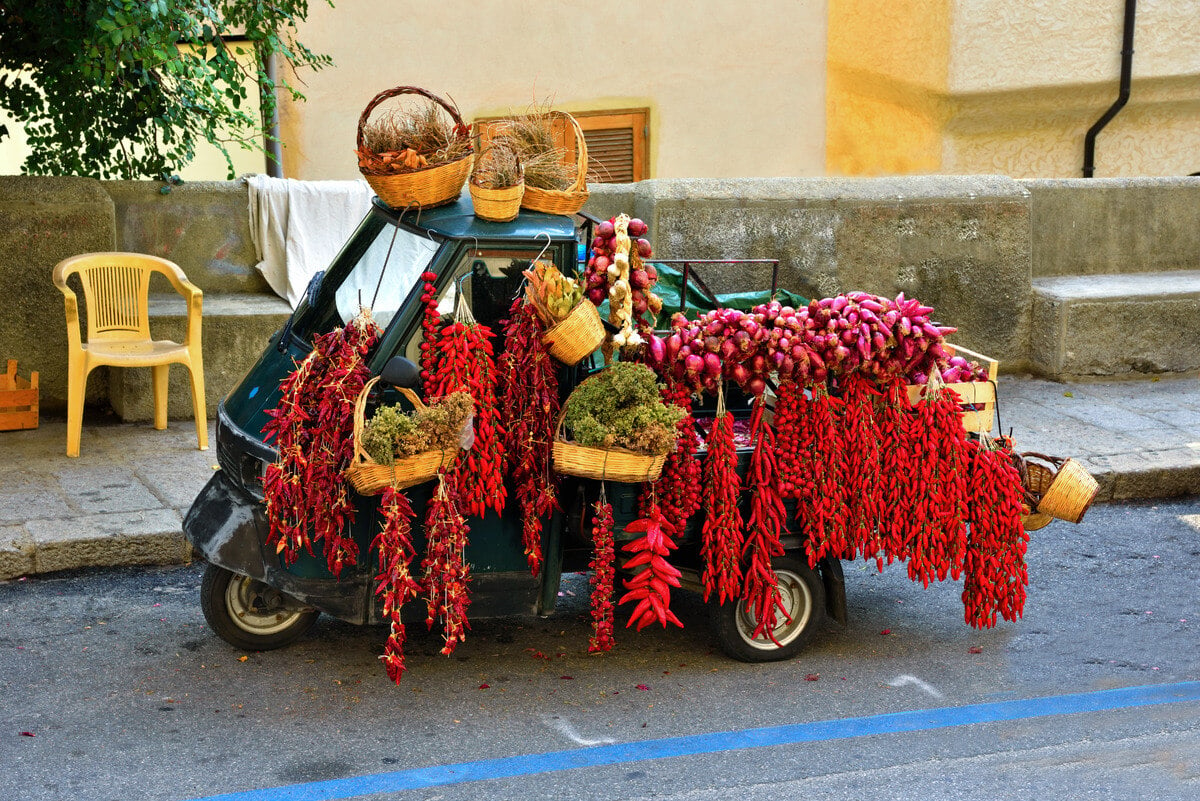Ortica, one of the outer neighborhoods in eastern Milan, is undergoing a colorful transformation thanks to street art.
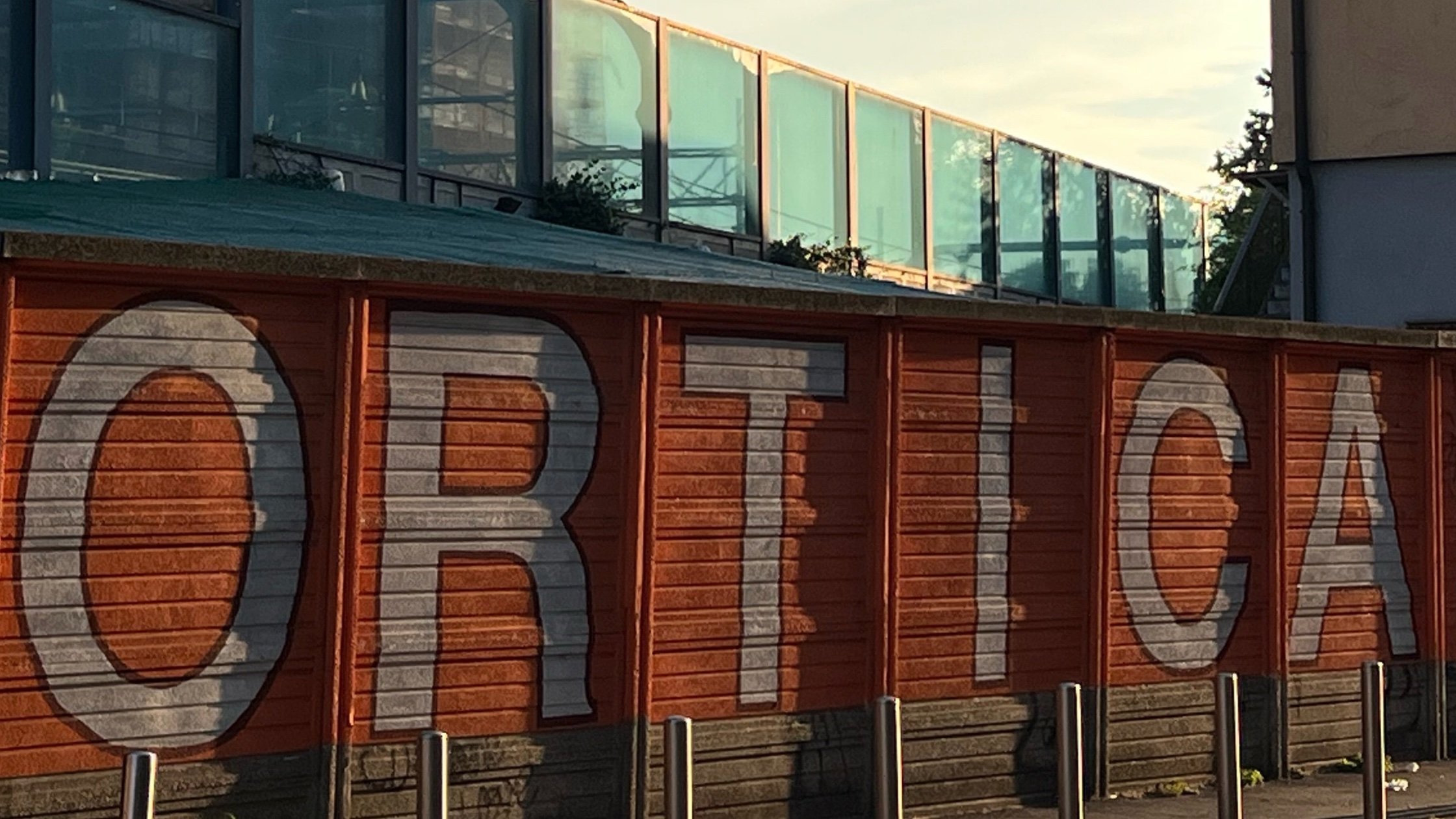
ORTICA
Want to get off-the-beaten path in Milan? Head to Ortica. This district has a long history. It was on the ancient Roman road that led to Aquileia, though not much is known about it during that time. It's more recent history is both agricultural and industrial.
Its position by the Lambro River made it an ideal spot for growing crops, and it was once dominated by gardens. The name Ortica is derived from the Italian word orto, which means vegetable garden.
It was also frequented by railway workers. Until the early 1900's the Milan-Treviglio railway crossed through here. The words "After railway work" can still be seen on the wall of the Balera dell’Ortica, which today is a popular venue for swing enthusiasts.
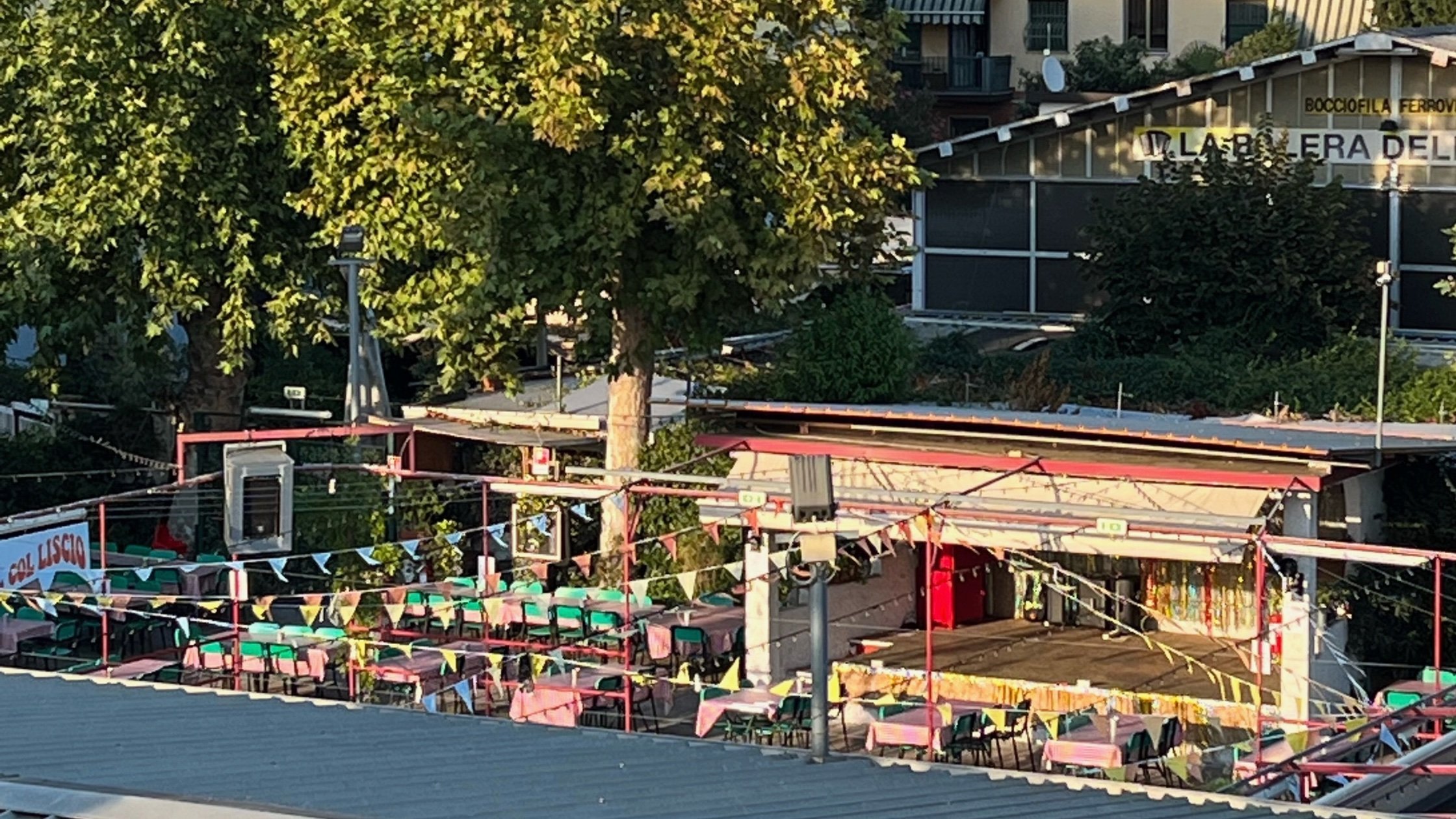
During WWII with the arrival of the Innocenti Factory the area became an industrial hub but it never lost its small village feel. This is still evident today: walking around the neighborhood you'll forget you're in one of Italy's largest cities. There are low houses and old shops where you can chat with the shopkeeper. You might run into the local priest in the church right in the square.
ORME ANTICA MEMORIA: LE OPERE DI STREET ART
Over the decades with the decline of industry Ortica was mostly forgotten by outsiders. Today there is a push to revive the area and to encourage locals and tourists to explore its streets. In 2017 the "ORME Ortica Memoria" project began. The goal is to turn the neighborhood into an open-air museum where the history of the Italian twentieth century is told on the walls.
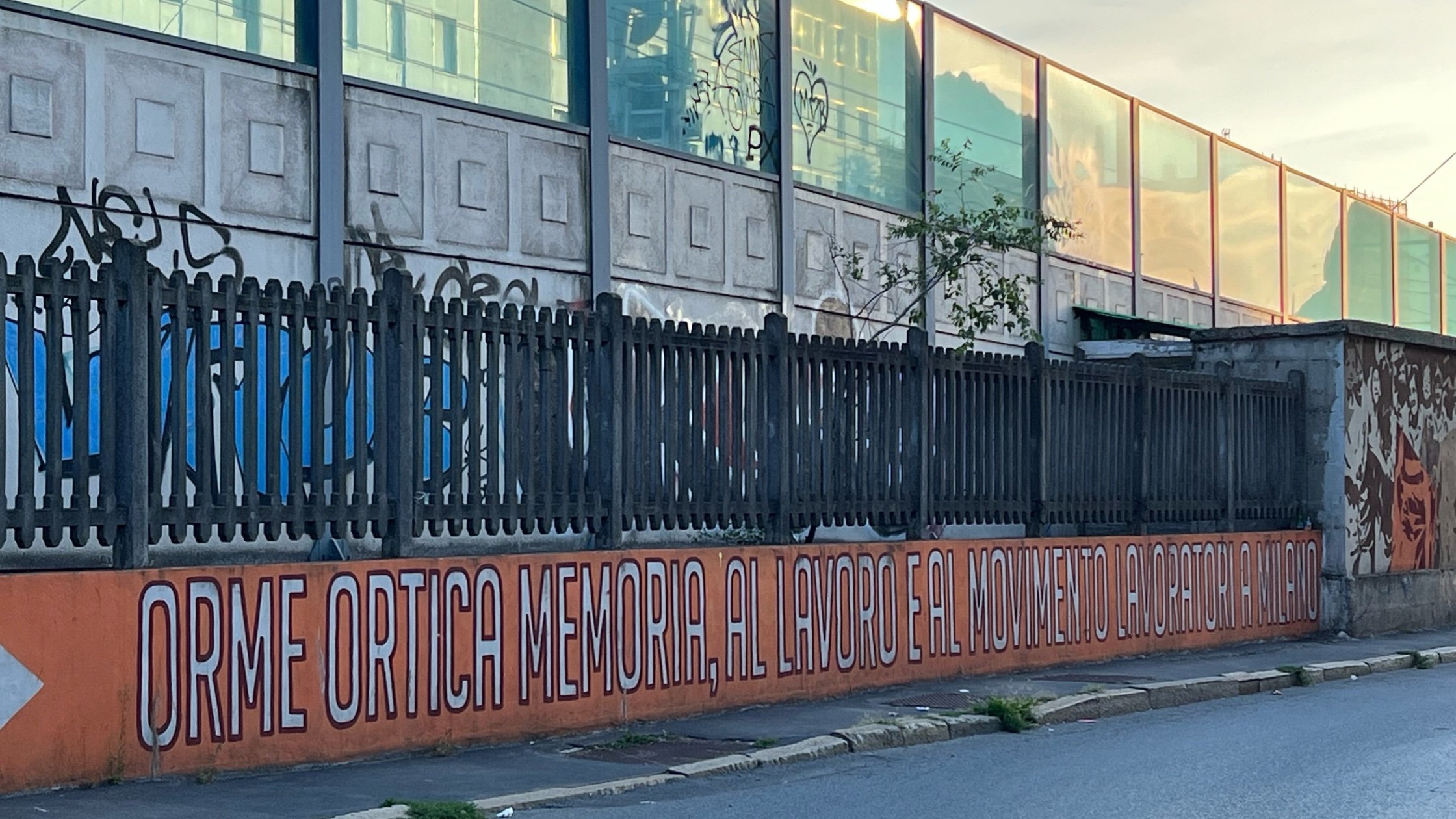
There are currently 20 murals which cover a variety of topics. During a recent trip to Milan I visited Ortica and saw many of them myself. Here are just a few.
WALL OF WOMEN WHO MADE THE 1900s GREAT
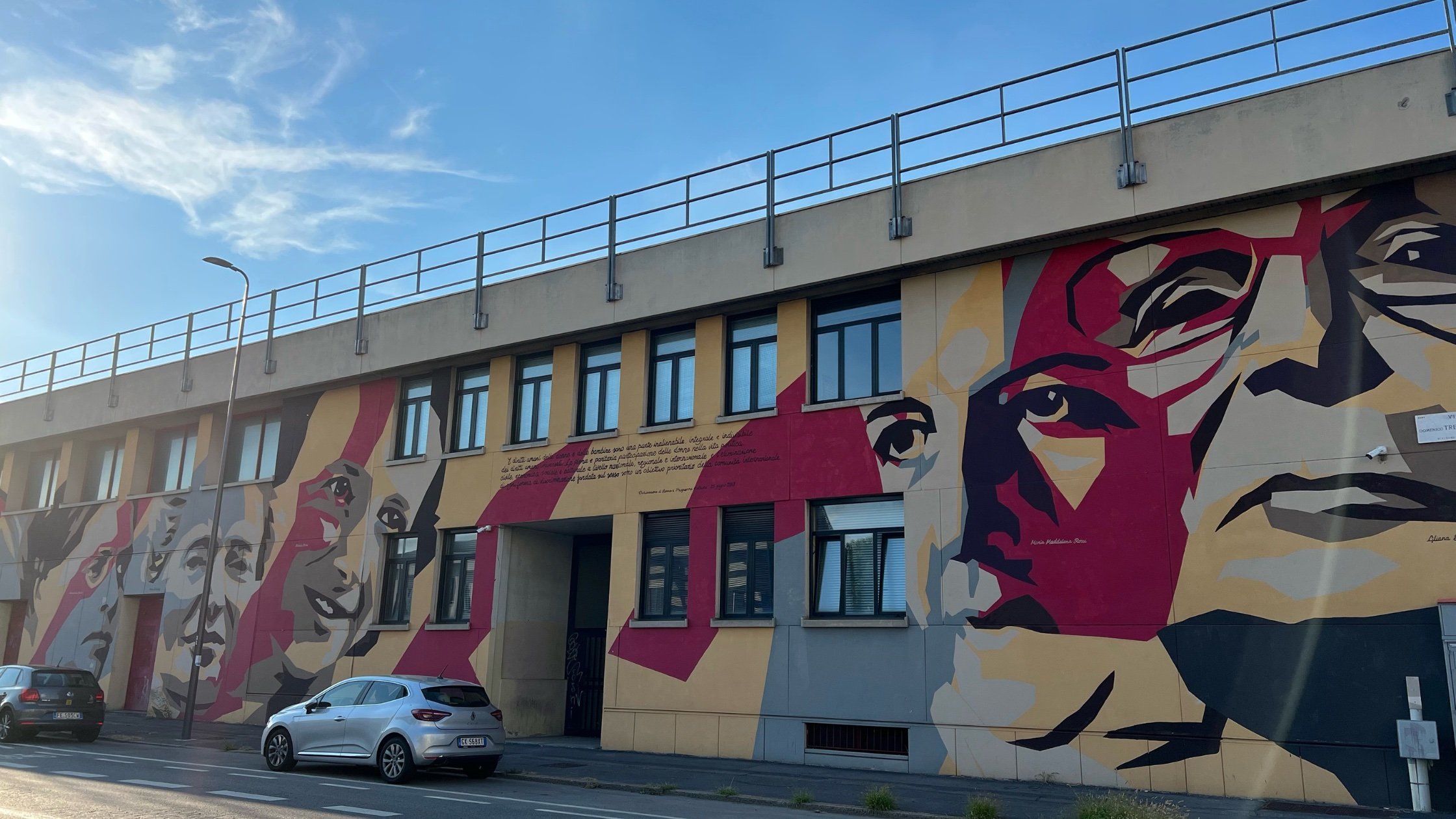
LOCATION: Istituto Alberghiero Pasolini, wing of the school building on via Trentacoste 9-5
This mural is dedicated to women in the 20th century who contributed to the gains women made to attain equal rights at work, in the home and in society.
THE ALPINI IN TWO WORLD WARS
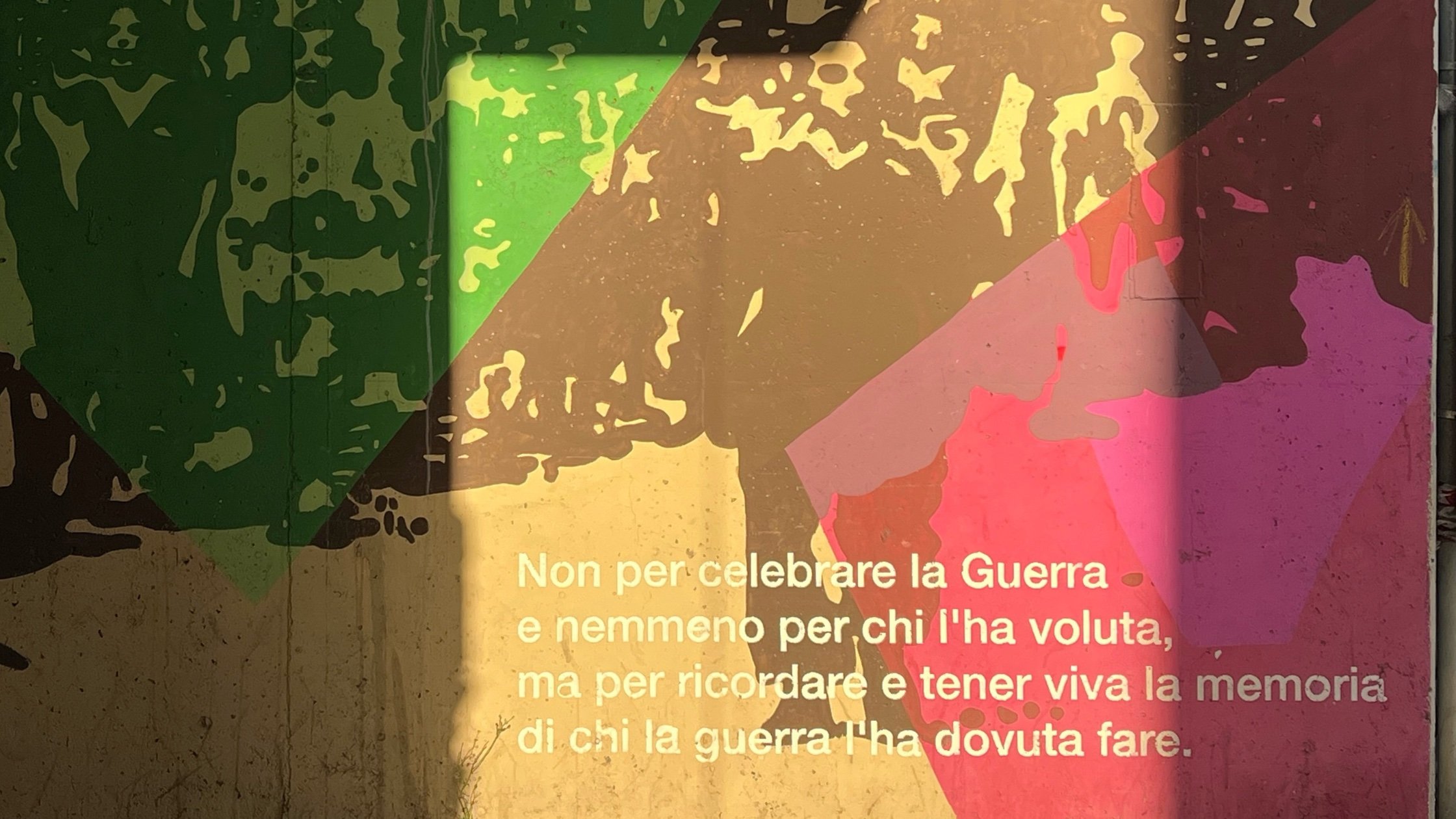
LOCATION: at the end of via Ortica in the tunnel leading to via Cima
These two murals on opposite walls of the railway underpass narrate the the two World Wars from the Italian perspective and pay tribute to the Alpini troops.
POPULAR MUSIC
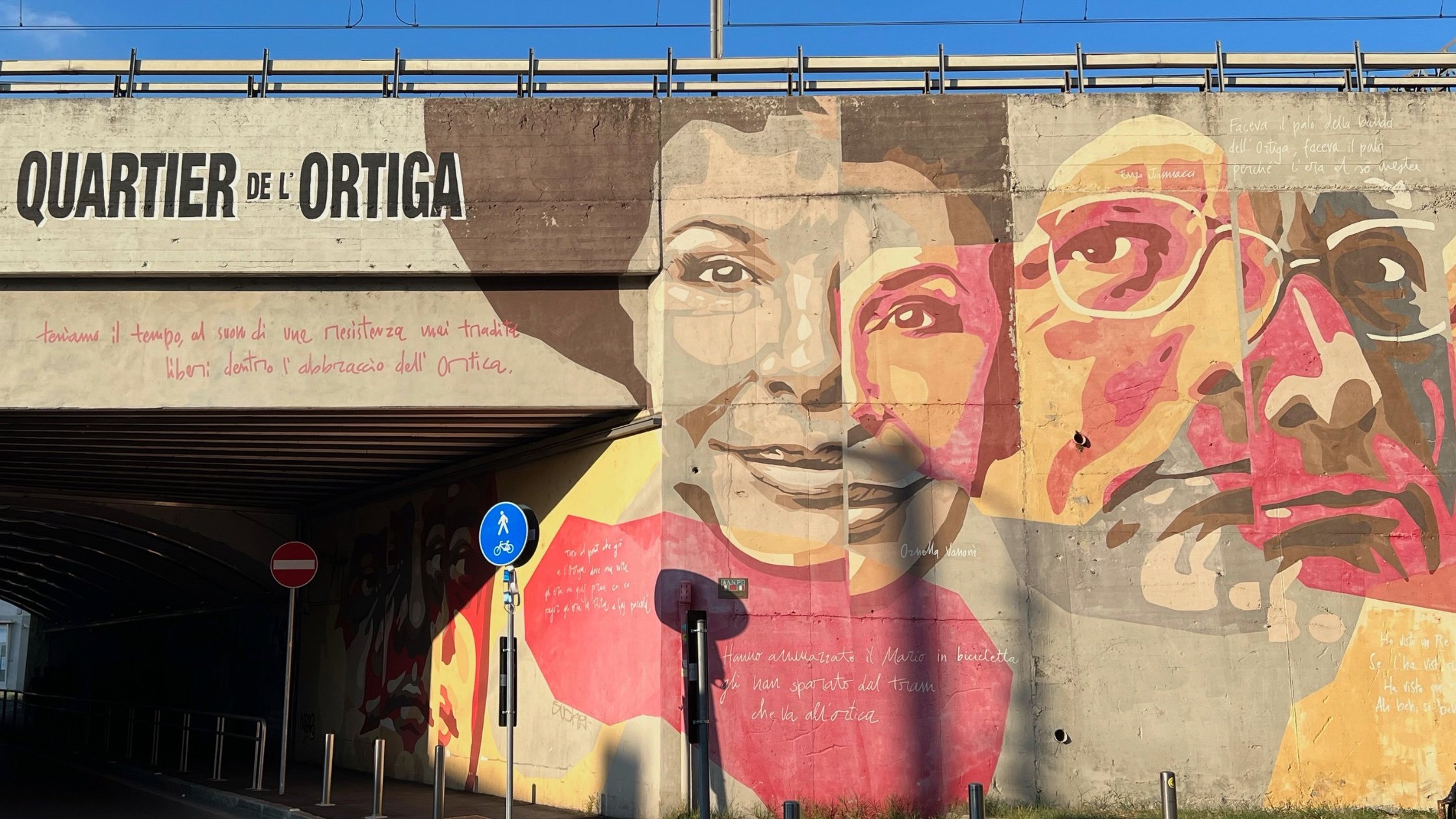
LOCATION: along the railway bridge of via San Faustino (near via San Faustino 10)
Ortica is a neighborhood known for music. The area is full of trattorias and taverns where people would gather and sing in between sips of wine and slices of salami. This colorful mural is dedicated to the most prestigious and well-known singers and authors of Milanese song.
IN THE FOOTSTEPS OF IMMIGRANTS
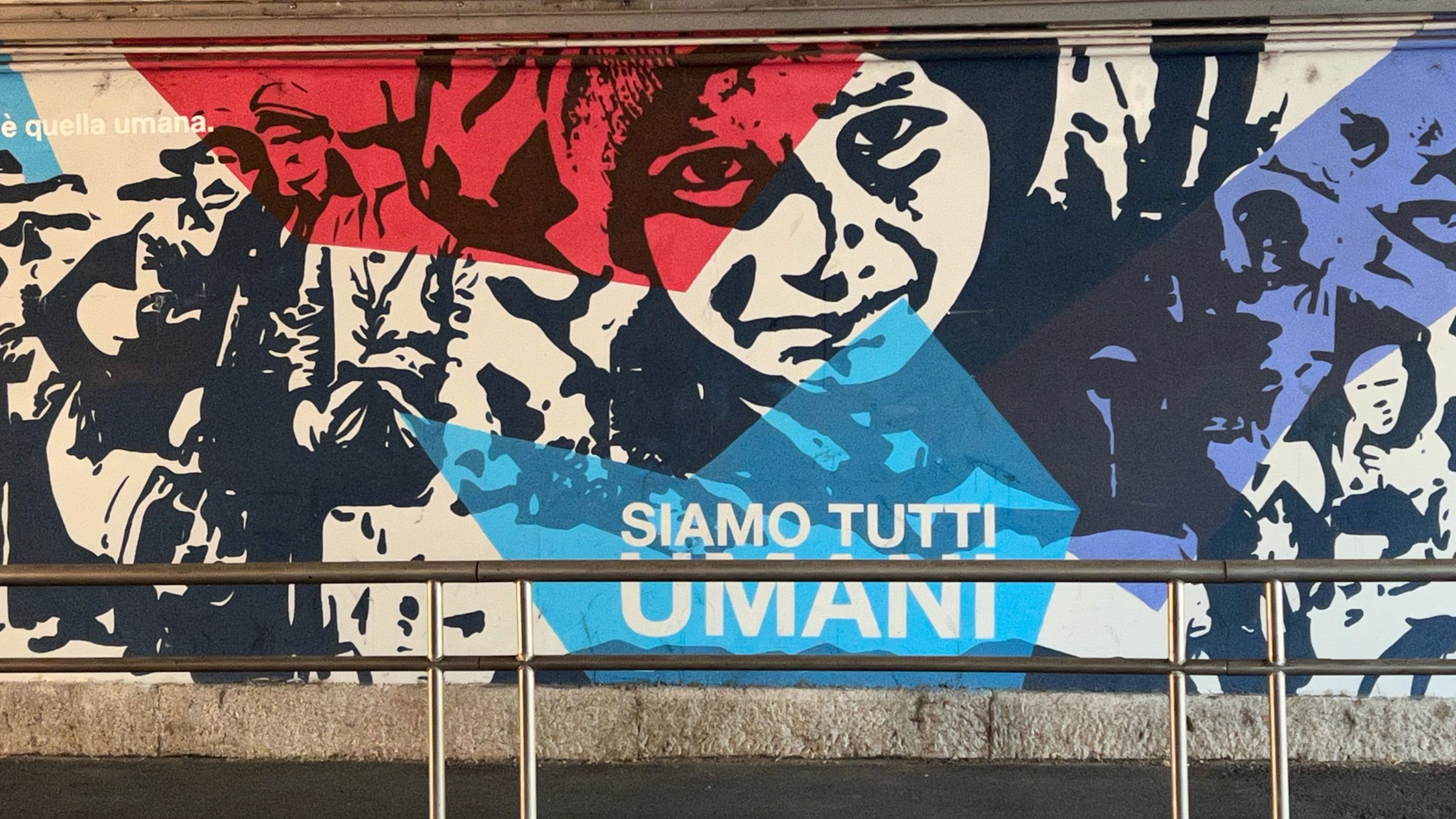
LOCATION: via San Faustino in the tunnel leading from via Cima
Sixty million Italians reside abroad, almost as many as there are living in Italy. For most of the twentieth century, Italian emigrants managed to reach every corner of the globe.
Ortica is an area of Milan where immigration from all over Italy is commonplace. Railway workers are among those who frequently take up residence in the district.
The two murals in the tunnel tell these stories, as well as the ones of present-day immigrants arriving in Ortica from Africa.
ORTICA COMES FROM GARDEN
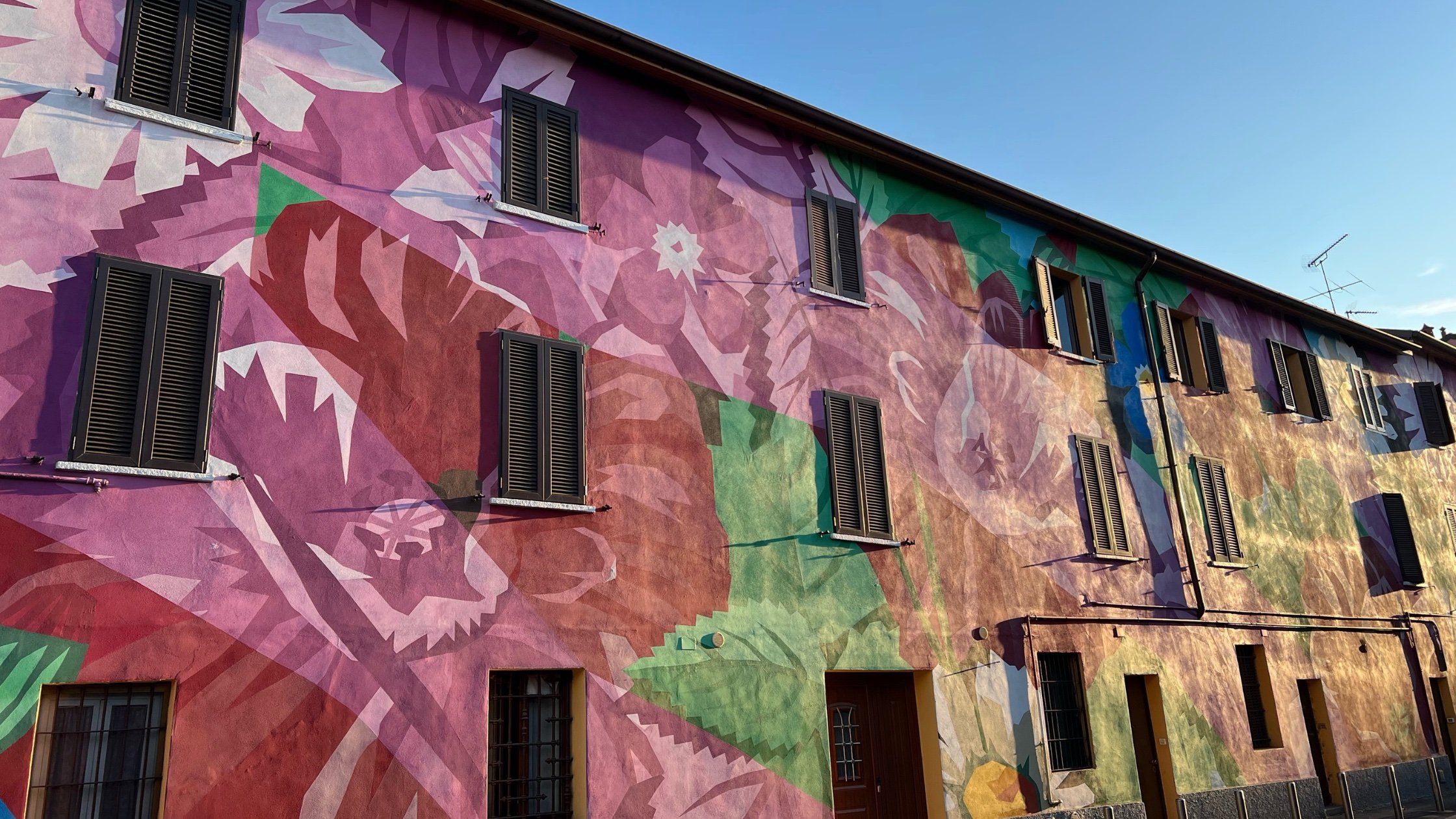
LOCATION: Via Ortica 12
If you translate the word ortica, you'll most likely get the English word nettles. However, that is not what the neighborhood is named after. As I mentioned above, Ortica is derived from the Italian word orto, meaning garden. In this mural, giant, colorful flowers fill the wall and remind viewers of Ortica's agricultural past. The poppies also symbolize peace and those who have fallen in battle.
THE WALL OF LABOR
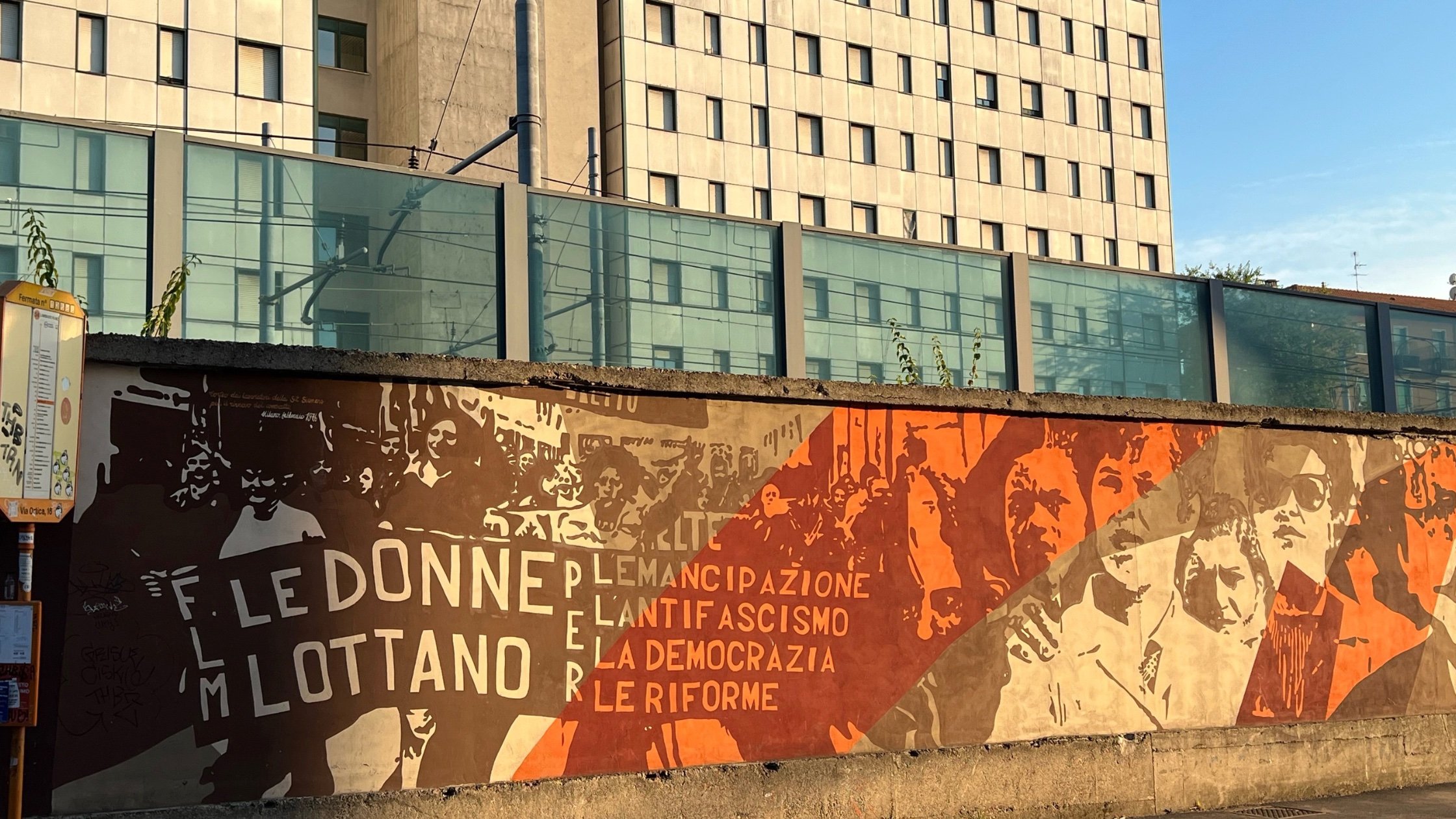
LOCATION: Wall of the railway facing via Ortica 23
Milan is the cradle of the Italian workers' movement. In 1891 the first Camera del Lavoro (Chamber of Labor) in Italy was started here, with the aim of fighting exploitation and unemployment. In 1906 the Confederazione Generale del Lavoro (General Confederation of Labor), the first trade union, was established.
The Mural of Labor is a tribute to the Milanese workers who fought for better living and working conditions. Teresa Noce, who is portrayed in the mural, was a partisan, a member of the Italy’s Constituent Assembly, a trade unionist (general secretary of textiles) - and the parliamentarian to whom Italy owes its maternity law.
THE SPORTS WALL
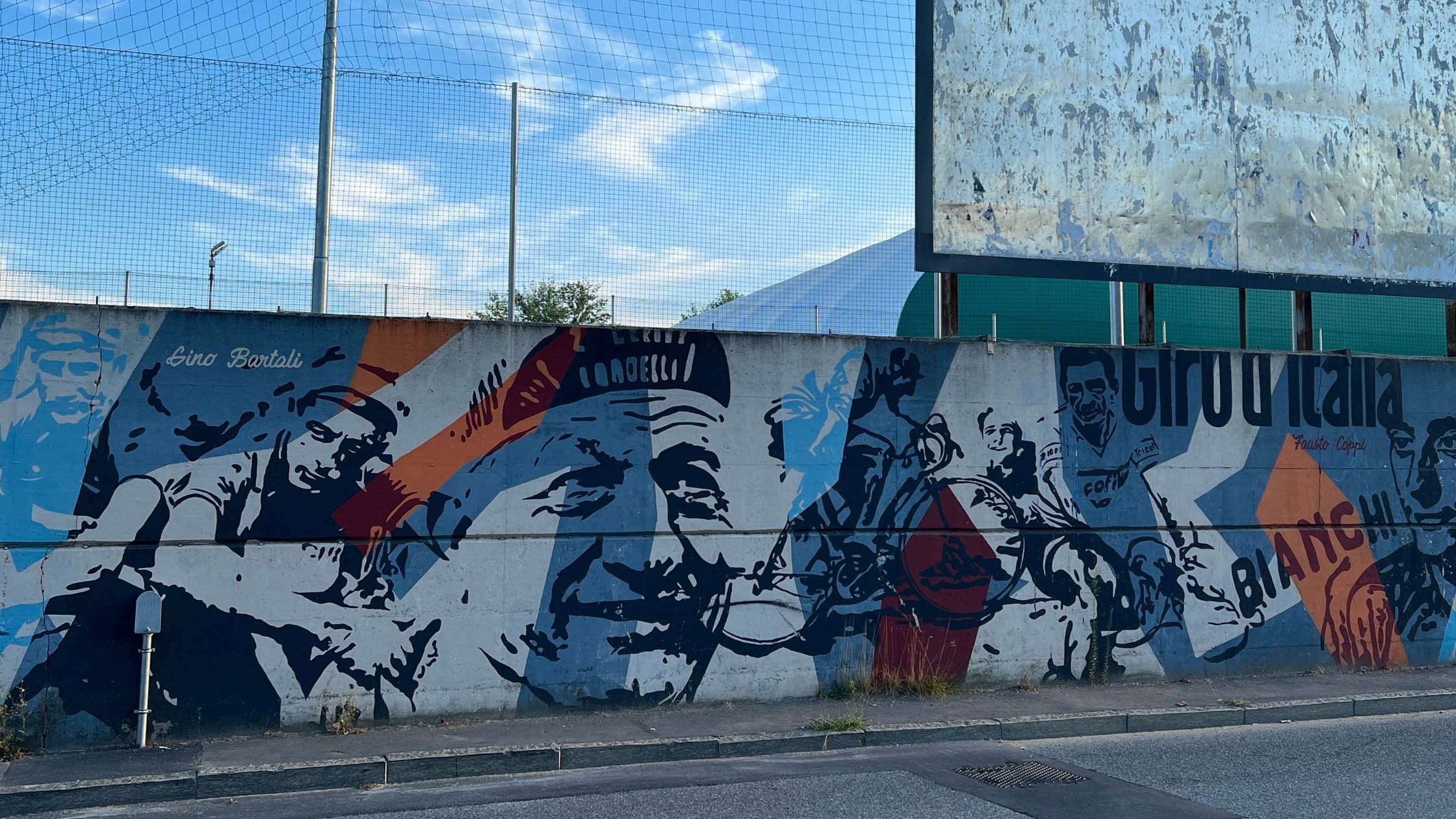
LOCATION: Società Sportiva Scarioni, via Tucidide corner via Cavriana
This is a big mural that covers a long, gray wall. It depicts Italian champions who have distinguished themselves not only for their accomplishments in their respective sports, but also for their social and civil engagement.
WORDS OF FREEDOM
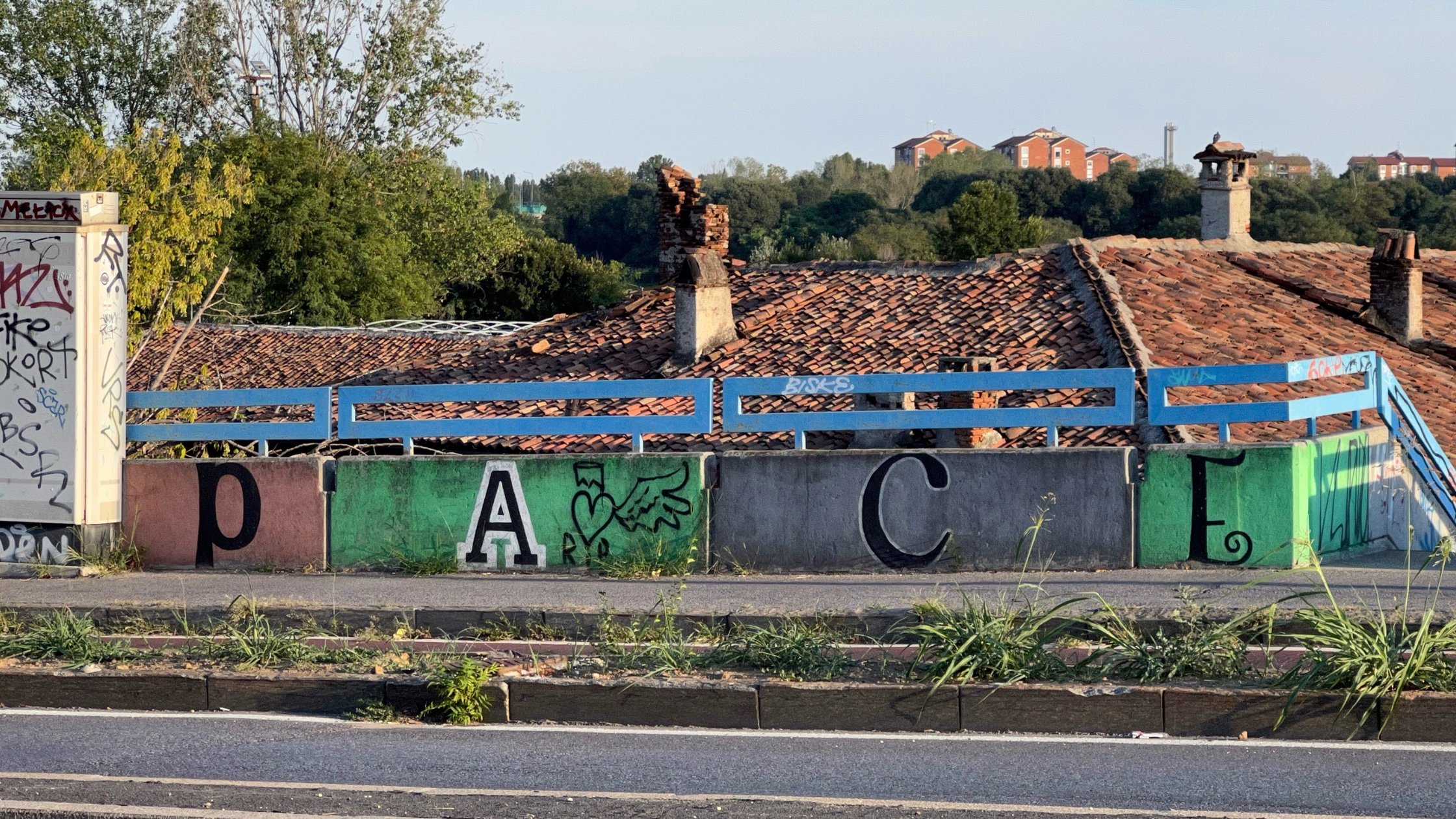
LOCATION: Cavalcavia Buccari
Long lines of words adorn the two sides of the Buccari overpass. They were chosen by local schoolchildren on the 70th anniversary of the end of the Nazi-fascist occupation of Milan and Turin on April 25, 1945. The children were asked which words best represent the concepts of freedom and resistance.
NEIGHBORHOOD
Aside from the ORME project, the Ortica neighborhood is filled with other colorful murals and graffiti.
